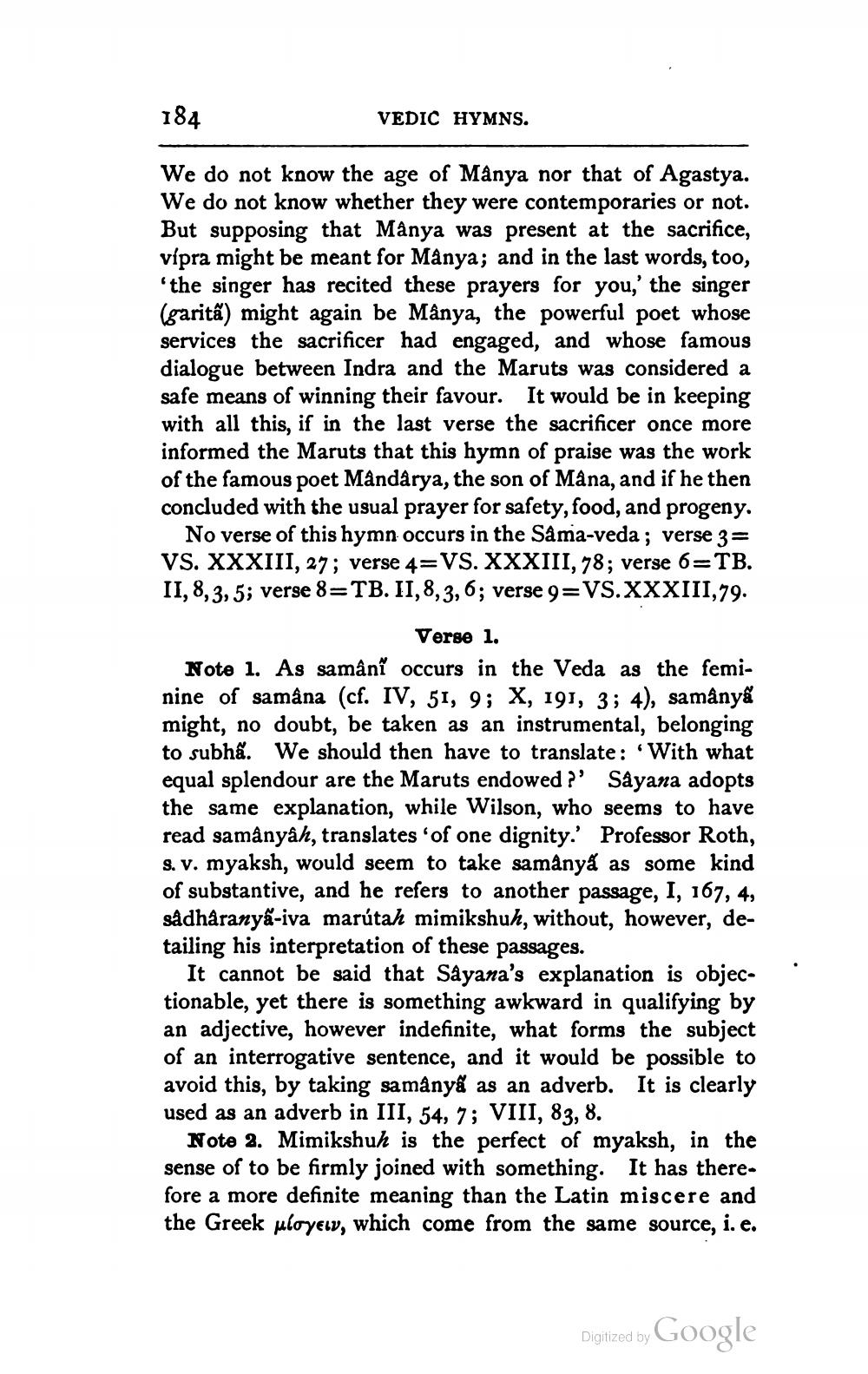________________
184
VEDIC HYMNS.
We do not know the age of Manya nor that of Agastya. We do not know whether they were contemporaries or not. But supposing that Manya was present at the sacrifice, vípra might be meant for Mânya; and in the last words, too, 'the singer has recited these prayers for you,' the singer (garitā) might again be Mânya, the powerful poet whose services the sacrificer had engaged, and whose famous dialogue between Indra and the Maruts was considered a safe means of winning their favour. It would be in keeping with all this, if in the last verse the sacrificer once more informed the Maruts that this hymn of praise was the work of the famous poet Måndarya, the son of Mâna, and if he then concluded with the usual prayer for safety, food, and progeny,
No verse of this hymn occurs in the Sama-veda; verse 3= VS. XXXIII, 27; verse 4=VS. XXXIII, 78; verse 6=TB. II, 8, 3, 5; verse 8=TB. II,8,3, 6; verse 9=VS.XXXII1,79.
Verse 1. Note 1. As samâni occurs in the Veda as the feminine of samâna (cf. IV, 51, 9; X, 191, 3; 4), samanya might, no doubt, be taken as an instrumental, belonging to subhã. We should then have to translate: With what equal splendour are the Maruts endowed?' Sayana adopts the same explanation, while Wilson, who seems to have read samânyâh, translates of one dignity.' Professor Roth, S. v. myaksh, would seem to take samanya as some kind of substantive, and he refers to another passage, I, 167, 4, sådhåranya-iva marútah mimikshuh, without, however, detailing his interpretation of these passages.
It cannot be said that Sayana's explanation is objectionable, yet there is something awkward in qualifying by an adjective, however indefinite, what forms the subject of an interrogative sentence, and it would be possible to avoid this, by taking samânyå as an adverb. It is clearly used as an adverb in III, 54, 7; VIII, 83, 8.
Note 2. Mimikshuh is the perfect of myaksh, in the sense of to be firmly joined with something. It has there. fore a more definite meaning than the Latin miscere and the Greek uloyelv, which come from the same source, i. e.
Digitized by
Digitized by Google




